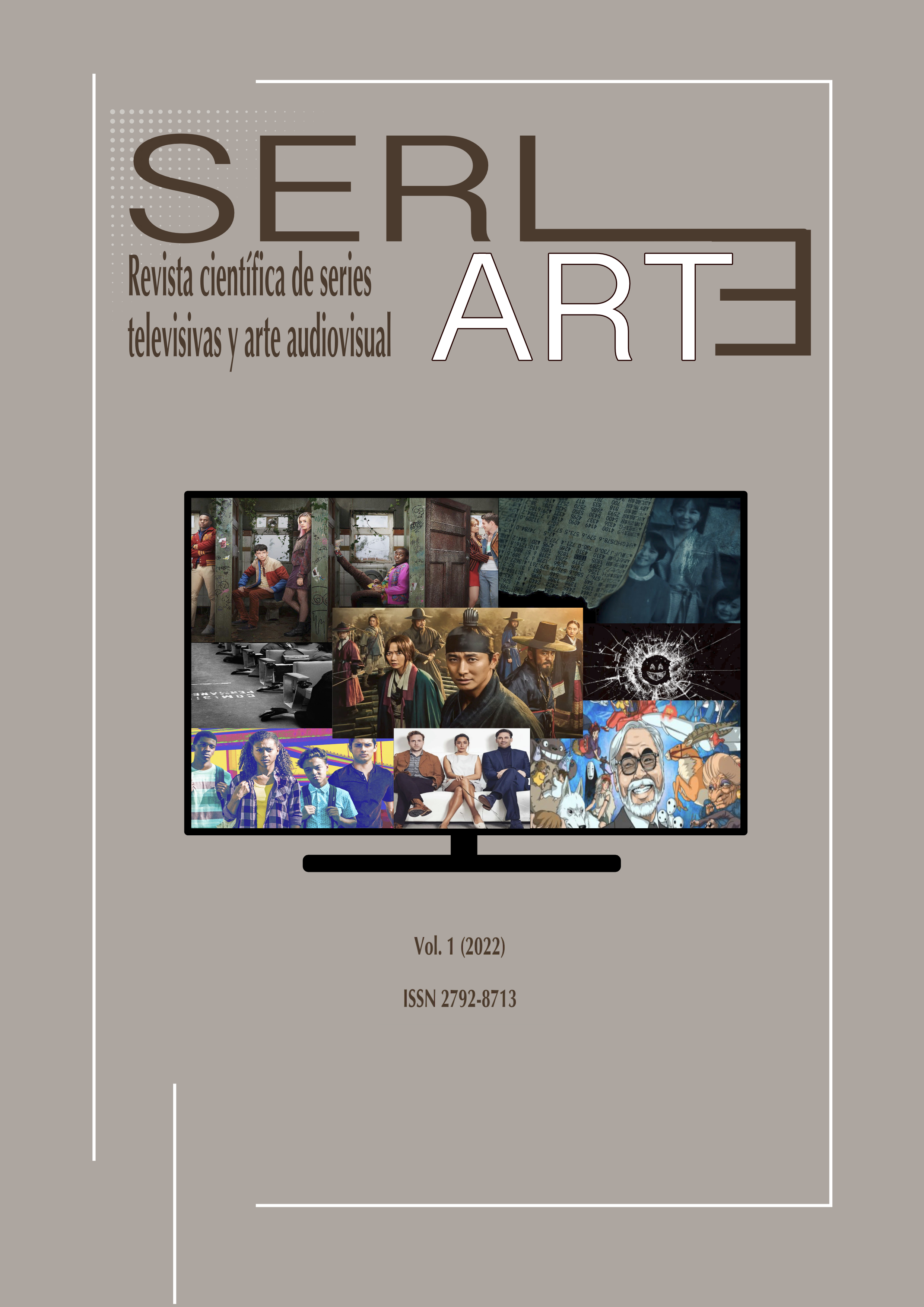La traducción del argot sexual en series juveniles: el doblaje de Sex Education
Contenido principal del artículo
Resumen
Actualmente, resulta innegable que Netflix se ha instaurado en España como una de las plataformas VOD más exitosas del panorama audiovisual. Una de las claves de su éxito es la variedad de producciones disponibles, que satisfacen a suscriptores de todas las edades y grupos sociales. Una de las series más populares entre la población joven es Sex Education (2019), que se ha atrevido a representar fielmente el comportamiento y el habla de los adolescentes frente a situaciones cotidianas relacionadas con la sexualidad, reproduciendo su lenguaje sin ningún tipo de tabú. En el presente estudio realizamos un análisis de la traducción (EN-ES) del sociolecto juvenil en lo que respecta al argot sexual, con el fin de determinar el registro lingüístico predominante tanto en la cultura británica como en la española, así como los niveles de intensidad de la terminología empleada en ambas lenguas. Finalmente, evaluamos el efecto causado por la presencia del lenguaje sexual entre el público joven español para comprobar si el doblaje proporciona el mismo grado de naturalidad y adecuación del sociolecto, de modo que asegure el éxito de Sex Education entre sus consumidores.
Descargas
Datos de publicación
Perfil evaluadores/as N/D
Declaraciones de autoría
Indexado en
- Sociedad académica
- Seriarte. Revista científica de series televisivas y arte audiovisual
- Editorial
- Ucopress. Cordoba University Press
Detalles del artículo
Citas
ÁVILA CABRERA, José Javier (2015), «Propuesta de modelo de análisis del lenguaje ofensivo y tabú en la subtitulación», Verbeia: journal of English and Spanish studies, (0), pp. 8-27.
ALLAN, Keith y BURRIDGE, Kate (2006), Forbidden Words. Taboo and the Censoring of Language, Cambridge: Cambridge University Press
BERNAL MERINO, Miguel Ángel (2018), La traducción audiovisual: análisis práctico de la traducción para los medios audiovisuales e introducción a la teoría de la traducción filológica, Alicante: Publicacions Universitat Alacant.
CESTERO MANCERA, Ana María (2015), «La expresión del tabú: estudio sociolingüístico», Boletín de Filología, 50 (1), pp. 71-105
CHAUME VARELA, Frederic (2005), «Los estándares de calidad y la recepción de la traducción audiovisual», Puentes, 6, pp. 5-12.
DÍAZ CINTAS, Jorge y REMAEL, Aline (2007), Audiovisual Translation: Subtitling, Manchester: St. Jerome.
GUARINOS, Virginia (2009), «Fenómenos televisivos 'teenagers': prototipias adolescentes en series vistas en España», Comunicar, 33 (17), pp. 203-211.
FERNÁNDEZ, Laura (2020), «Si ves ‘Sex Education’ solo por el sexo te pierdes una gran serie», El País, 26 de enero. En: <https://elpais.com/cultura/2020/01/24/television/1579883897_756440.html> (Fecha de consulta: 14-septiembre-2021)
FUENTES LUQUE, Adrián (2015), «El lenguaje tabú en la traducción audiovisual: límites lingüísticos, culturales y sociales», E-Aesla, nº1.
INIGO ROS, Marta y WESTALL, Debra (1996), «The translation of Relaia in ‘A Perfect World’» citado en PALENCIA VILLA, Rosa María (mayo de 2004), «El doblaje audiovisual, ¿barrera o puente en el diálogo multicultural? Problemas y propuestas», Comunicación llevada a cabo en la Universitat Autònoma de Barcelona, Barcelona.
KOTSCHI, Thomas, OESTERREICHER, Wulf y ZIMMERMANN, Klaus (1996), El español hablado y la cultura oral en España e Hispanoamérica, España: Instituto iberoamericano.
MAYO MARTÍN, Paula (2018), «Estudio sobre expresiones metafóricas tabú de uso frecuente para su aplicación a la enseñanza de Español como Lengua Extranjera». En: DÍAZ FERRO, Marta, VAAMONDE, Gael, VARELA SUÁREZ, Ana, CABEZA PEREIRO, María del Carmen, GARCÍA-MIGUEL GALLEGO, José María y RAMALLO FERNÁNDEZ, Fernando (Eds.), Actas do XIII Congreso Internacional de Lingüística Xeral, pp. 600-606.
MITKOVA, Adriana (2007), «El léxico juvenil por áreas temáticas», Tonos. Revista electrónica de estudios filológicos, nº 14, Murcia: Universidad de Murcia.
PUJOL, Dídac (2006), «The Translation and Dubbing of ‘Fuck’ into Catalan: The Case of From Dusk till Dawn», The Journal of Specialised Translation, nº 6, pp. 121-133.
RAYA, Irene, SÁNCHEZ-LABELLA, Inmaculada y DURÁN, Valeriano (2018), «La construcción de los perfiles adolescentes en las series de Netflix Por trece razones y Atípico», Comunicación y medios, (37), pp. 131-143.
RODRÍGUEZ GONZÁLEZ, Félix (2002), «Lenguaje y contracultura juvenil: anatomía de una generación», en RODRÍGUEZ GONZÁLEZ, Félix (Coord.), El lenguaje de los jóvenes. Barcelona: Ariel, pp. 29-56.
SÁNCHEZ BENEDITO, Francisco (2005), «Eufemismo y fraseología sexual en inglés», en SANTAEMILIA RUIZ, José (Coord.), The language of sex, saying and not saying, València: Universitat de València, pp. 75-87.
SANTAEMILIA, José (2010), «Amor y erotismo en Vargas Llosa y su traducción al inglés». Trans, Revista de Traductología, 0 (14), pp. 125-141.
SANTAEMILIA, José (2008), «The Translation of Sex-Related Language: The Danger(s) of Self-Censorship(s)». TTR, 21 (2).
SANTOS GARGALLO, Isabel (1997), «Algunos aspectos léxicos del lenguaje de un sector juvenil. Historias del Kronen de J.A: Mañas», Revista de filología románica, nº 14, 1, pp. 455-474.
SURIÀ, Scheherezade (2014), «Sexo oral y escrito: argot, eufemismos y etimología». En la luna de Babel [Blog], 15 de julio. En: < https://enlalunadebabel.com/2014/07/15/sexo-oral-y-escrito-argot-eufemismos-y-etimologia/> (Fecha de consulta: 14-septiembre-2021).
VV. AA. (2021), Anuario de las artes escénicas, musicales y audiovisuales. En: <http://www.anuariossgae.com/home.html> (Fecha de consulta: 05-septiembre-2021).
VV. AA. (2021), Diccionario de la Real Academia Española. En: <https://dle.rae.es/diccionario> (Fecha de consulta: 28-agosto-2020).
ZORRILLA, Mikel (2015), «La evolución del sexo en el cine», Espinof, 9 de febrero. En: <https://www.espinof.com/diccionario-cine-television/la-evolucion-del-sexo-en-el-cine-i> (Fecha de consulta: 13-septiembre-2021).
NUNN, Laurie (2019). Sex Education (Temporada 1) [TV]. Reino Unido: Eleven Film. Distribuida por Netflix España.






